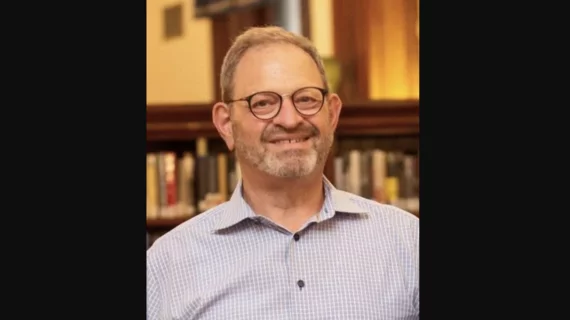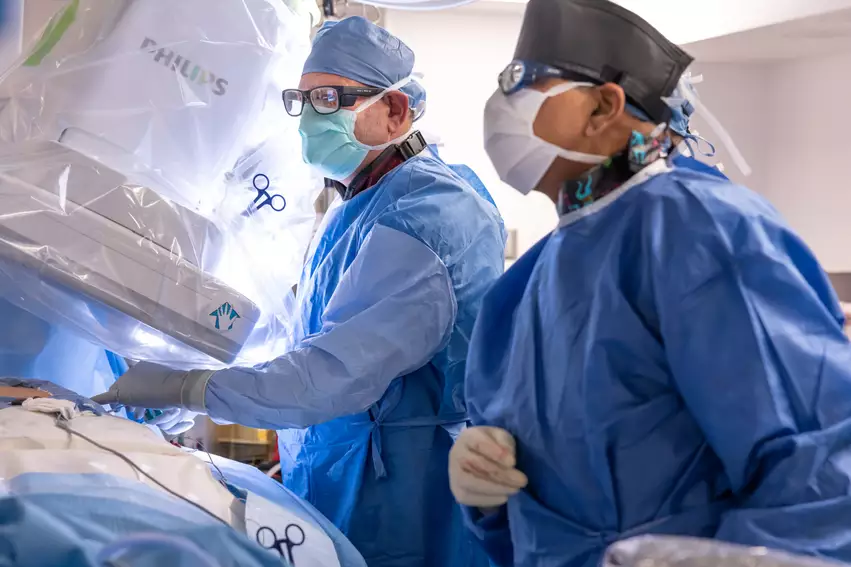Cardiologist Bruce Wilkoff remembered as a ‘pioneer’ of electrophysiology, ‘beacon of medical excellence’
Bruce Wilkoff, MD, a veteran cardiologist with Cleveland Clinic and a giant in the field of cardiovascular medicine, died Sunday, Jan. 7. He was 69 years old.
Wilkoff worked at Cleveland Clinic for 37 years, specializing in such areas as electrophysiology, sudden cardiac death and cardiac implantable electronic devices. He remained active in healthcare even after he was diagnosed with metastatic pancreatic cancer.
Device implantation was an especially significant passion for Wilkoff; his own father received a pacemaker in 1988, opening his eyes to just how many patients are impacted by this technology.
“There was no real process in place for managing these patients, and removals had to be done using fairly primitive tools,” Wilkoff told Cardiovascular Business years later in an interview. “That’s when I started focusing more and more on lead extraction with some colleagues of mine. We didn’t even realize at the time just how common this issue was—we just knew it was a patient group that really needed some help.”
Wilkoff was making history as recently as 2023. In May, he was one of two Cleveland Clinic cardiologists who performed the first heart procedure of its kind, successfully implanting a new dual cardiac device in a patient presenting with heart failure symptoms.
A lasting legacy
Colleagues, friends and professional associations have been coming forward to celebrate Wilkoff’s life and pay tribute to his lasting legacy.
“Dr. Wilkoff was recognized as an international expert in lead extraction and the design of new technologies to improve the performance of pacemakers and defibrillators,” according to a Cleveland Clinic statement. “He contributed greatly to his fiel—authoring hundreds of professional journal articles, running numerous clinical trials and holding several patents. Dr. Wilkoff saved and improved the lives of thousands of patients over his extensive career and will be greatly missed by the many patients, colleagues, trainees and friends that he has impacted.”
The Heart Rhythm Society also released a statement, calling Wilkoff a “pioneer in the field of cardiac electrophysiology” and describing his contributions to the specialty as “immeasurable.”
In its own public comment, Radcliffe Cardiology said its members were “profoundly saddened” to learn this news.
“Dr Wilkoff greatly benefited the lives of many and was a beacon of medical excellence and compassion in the cardiovascular field,” the group wrote. “His legacy will endure in guiding those with a commitment to healthcare excellence.”
A heartfelt discussion
In November 2023, Wilkoff joined cardiologist Eric Topol, MD, founder and director of the Scripps Research Translational Institute, for a long conversation about life, faith, medicine and much more. Wilkoff had already received his cancer diagnosis at this point. He talked at length about how the diagnosis had impacted his perspective on life and how meaningful it was to hear from friends and colleagues after he made the news public.
“I hope this encourages people to express themselves,” he said. “It takes some courage to do so, but not really. Life is a terminal illness. We’re all going to die, and for the small slice of time we’re here, we might as well express ourselves and communicate with one another.”
The full discussion is available here.
Editor’s note: The writers at Cardiovascular Business worked with Dr. Wilkoff multiple times over the years. We always found him incredibly smart and unfailingly kind. Our thoughts are with his loved ones at this difficult time.


